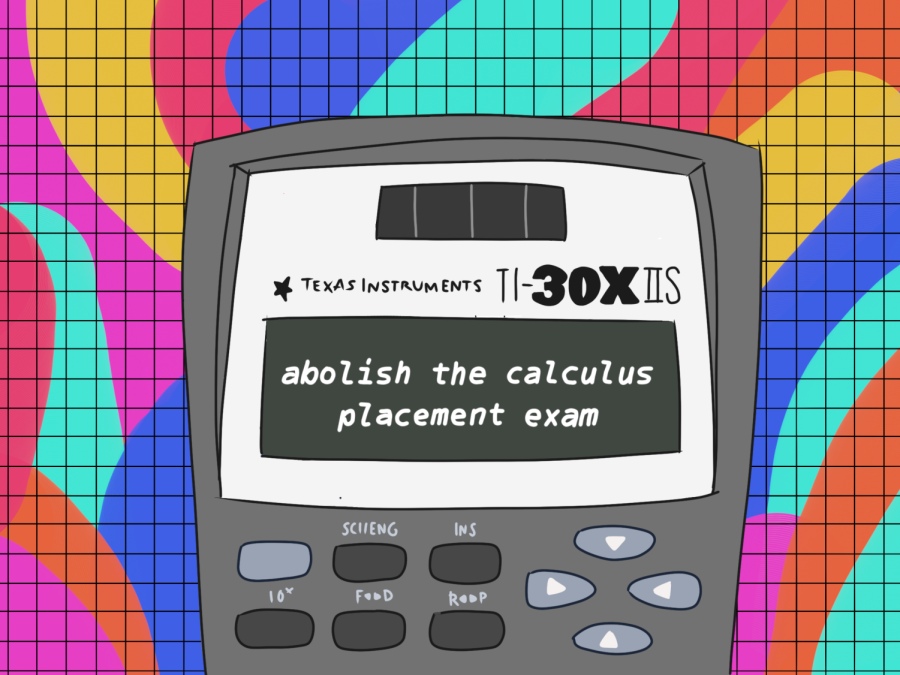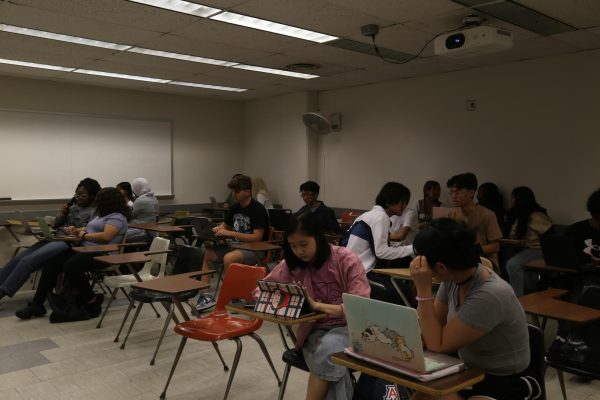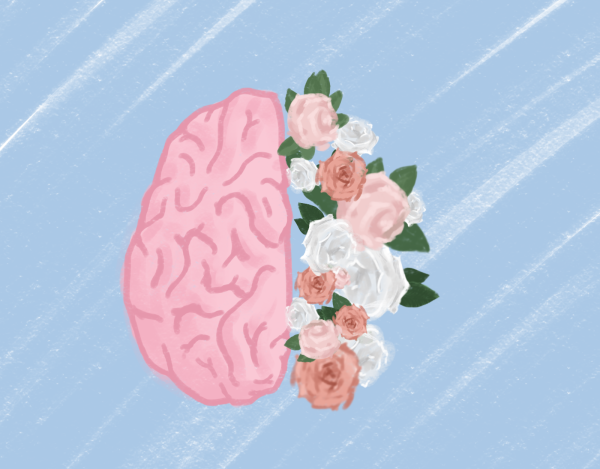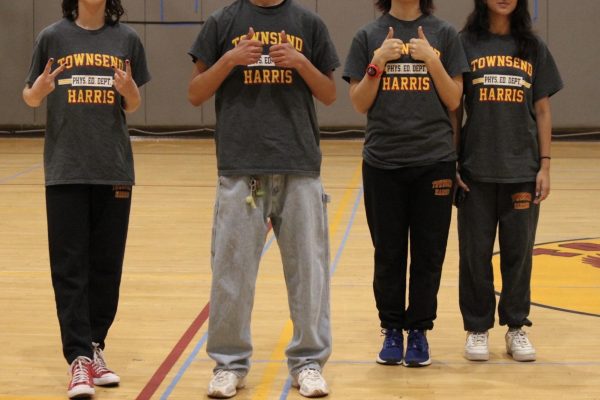EDITORIAL: With admissions at THHS so selective, there’s no need for calculus placement exams

Following the end of remote learning and the start of the 2021-2022 academic year, the Townsend Harris High School mathematics department introduced a calculus-specific placement exam. The exam, administered to students enrolled in either pre-calculus or introductory calculus, was the result of concerns regarding the lack of preparation for more advanced calculus classes in light of the remote school year. To account for differences in readiness among students, the placement exam was launched, allowing students to be placed in a calculus course (honors calculus, AP Calculus AB, or AP Calculus BC) on the basis of their scores.
While the exam may have been established with good intentions, it is unnecessary and indirectly fosters a competitive environment.
The previous concern over the COVID-19 pandemic hindering students’ learning abilities, specifically in calculus, is no longer relevant. Students have successfully integrated into a “normal” school setting for almost two years, meaning that there are no longer any pandemic-induced learning disparities and the THHS experience is more like it was before the pandemic, when there was no placement exam. In other words, while there may always be differences between students, there is no longer an international emergency that merits an extreme intervention.
Moreover, using an assessment to determine which level of calculus a student should be placed in is unfair to those who may want to go above their “tested abilities.” According to the 2021-2022 elective guide, “Placement in Calculus is determined by each student’s demonstrated achievement in Math, particularly Algebra 2 and Beginning Calculus.” The placement test scores of students may not necessarily correlate with their abilities nor should it limit their ability to be successful at a higher level.
The exam is set to be held this Friday, right at the end of AP exam season. A test that is administered in one day, during an already stressful testing period for students, cannot accurately measure how much students have learned within that year nor can it show how prepared students will be for the upcoming one. If THHS truly wanted a fair process to place students in the “proper classes,” then the timing of the exam should have been before or after AP season to provide students with ample time and resources to achieve their best results. Individuals who may have struggled in pre-calculus should still have the opportunity to excel in a higher level class, if they so choose.
While THHS is primarily a humanities-based institution, many Harrisites are focused on pursuing careers in STEM-related fields, with most wanting to complete the highest level of math available. That level is AP Calculus BC, a 6 credit college course comparable to a first and second semester calculus course. AP Calculus AB is the equivalent of only one. Compared to other calculus courses, BC has very few spots.
Besides calculus, THHS has a multitude of humanities-centric APs that do not require placement exams. All sophomores are required to take the AP World History Modern exam despite the fact that they may or may not be ready to take a course of that rigor. For AP United States History and AP English Literature or Language, THHS has implemented Regents-specific classes which are different from their AP counterparts and students are given the opportunity to choose which level they would like to take, without any sort of assessment. Notably, this choice does not exist for calculus. Moreover, all students are required to take the senior Humanities Seminar at Queens College, a six credit sequence, and students do not need to prove that they can handle the course.
The exam creates an implicit hierarchy between students in which their mathematical ability is ultimately determined by a test score, limiting their likelihood of pursuing classes that they would prefer. If the majority of students want the option to take AP Calculus BC, then there will be an emphasis on the urgency to study for the exam, which can feel demeaning to those who may want to be placed in the higher level calculus but are unable to achieve their desired scores. This sense of rankings can cause students of honors calculus and AP calculus AB to view their courses as inferior due to the way calculus classes are perceived by the student body.
If the issue is that there are not enough of the desired calculus classes for students, thus the exam helps to determine which students will fit certain courses, then THHS should get rid of the exam and add more BC classes based on demand. In a conversation with Principal Brian Condon, he said that there is a strong demand for BC classes, and expressed concerns about holding placement exams. He said that a change in teaching methods or curriculum might be more necessary to ensure all students who want to take BC are ready to take it.
While it may be more difficult, AP Calculus BC is designed to simulate a college-like experience, and making your own decisions regarding your academic journey is a part of that process. If a student who the exam deems “underprepared” to take a higher course decides that they would like to challenge themselves, they should be able to, knowing the expectations and rigor of the course.
While it might seem unrealistic to just “admit everyone,” admission to THHS itself is selective enough. For a school that already implements a detailed application process to ensure that students are able to handle rigorous courses, there’s no reason to add layers of selectivity. As the case of AP World History or the Humanities Seminar at Queens College shows, getting into THHS comes advanced options. The same should be true for mathematics.
Your donation will support the student journalists of The Classic. Your contribution will allow us to purchase equipment, support our extracurricular events, celebrate our staff, print the paper periodically, and cover our annual website hosting costs.

































anonymous • Nov 10, 2023 at 12:09 pm
I completely and utterly disagree with the contentions and the state of logic provided in this article. The writing in this article commits to the destruction of meritocracy and hard work, bedrock values of the United States. Instead of advocating to allow students to prove their competence and abilities through assessments, the article proposes that we eliminate the placement exam, which is aimed at measuring the mathematical prowess of our students.
Clearly, the Editorial Board lacked a level of awareness in the subject matter and the relevance of the assessment. The objective of it is not to conceive a barrier to mathematical exploration, but rather to promote a rendering of one’s academic level that enables their placement into a math class.
Something that the editorial staff asserts is that the content makeup is radically different across both courses. Both AB and BC contain the similar material; AB only leaves out Polar and Series/Sequences.
Overall, this article presents a number of logical leaps and underdeveloped argumentation. Not the best work of the Classic.